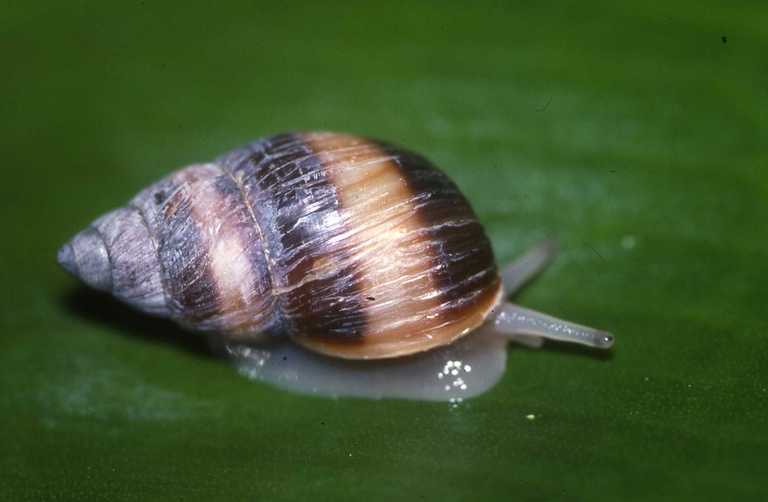Conservation
Like many groups of animals, mollusks face a myriad of ecological and environmental threats. Habitat loss, water pollution, climate change, ocean acidification, invasive species, and other factors are taking their toll as they are for coral reefs and countless other organisms.
It is essential for individuals and organizations, to the best of their ability, to work for clean water, protected ecosystems, and healthy and sustainable conditions for wildlife.
There is good conservation work happening today in the world of mollusks. Scroll down for some examples.
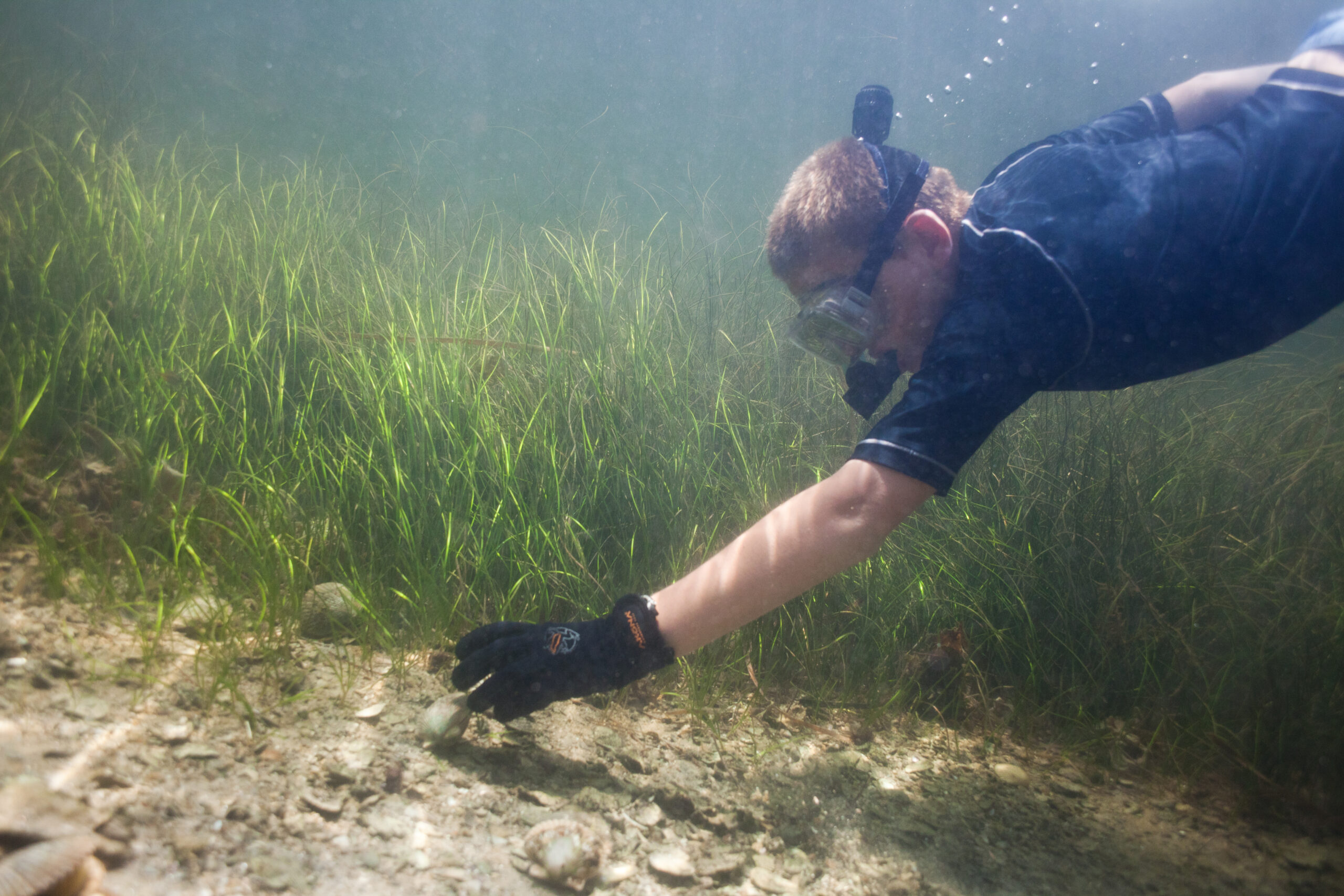
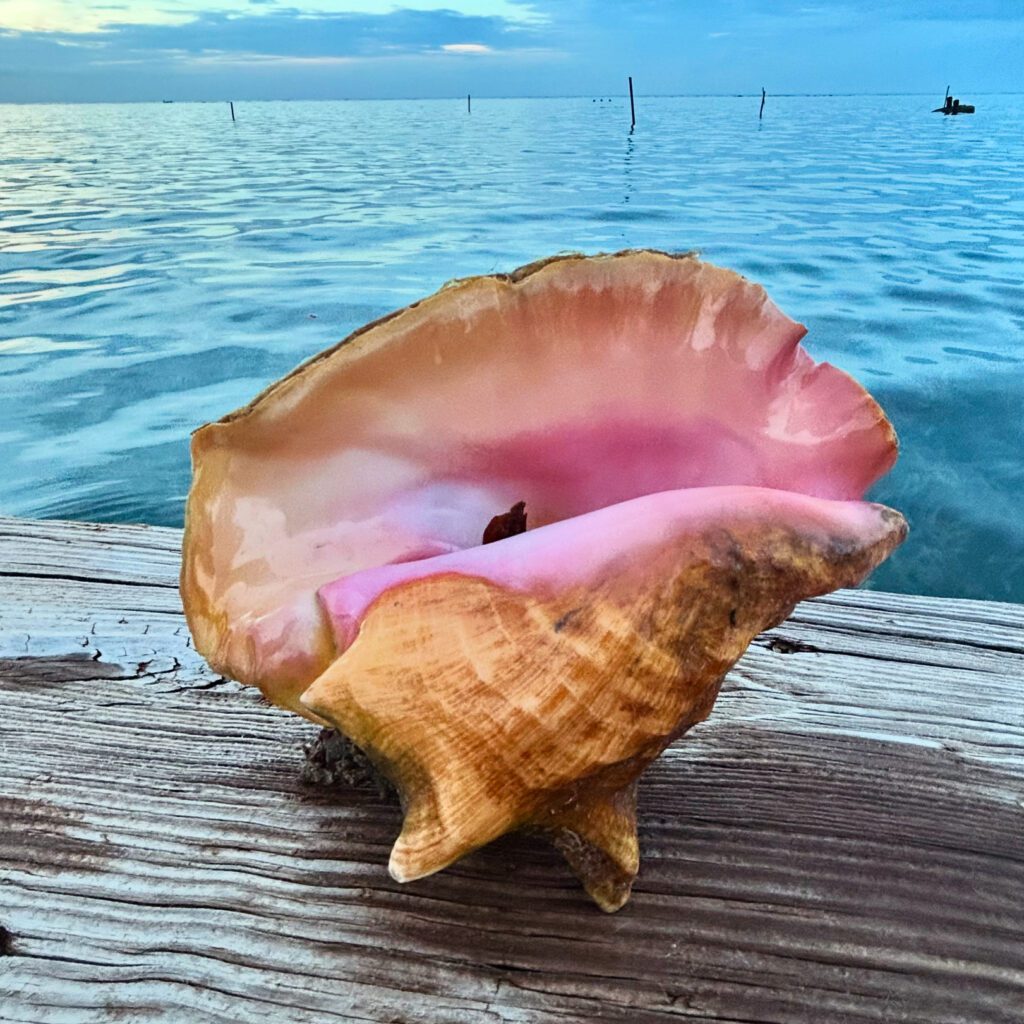
Saving the Queen of the Seas
The Queen Conch has been a beloved icon of the Caribbean, as well as an important food source, for millennia. However, intense fishing and habitat degradation have caused populations to dwindle throughout its range, and Queen Conch harvesting has been banned in South Florida since 1986. The species was listed as threatened in 2024 by NOAA Fisheries, an office of the National Oceanographic and Atmospheric Administration (NOAA).
Dr. Megan Davis of Florida Atlantic University’s Harbor Branch Oceanographic Institute has been developing Queen Conch aquaculture for decades. Her Queen Conch Lab team collaborates with fishers and local citizens to build community-based hatcheries throughout the Caribbean, with a goal to establish one in every Caribbean country to help to conserve and restore Queen Conch populations.
More information:
Restoring Oyster Reefs in Southwest Florida
Since 2009, the Marine Laboratory at Sanibel-Captiva Conservation Foundation (SCCF) has been working to restore intertidal reefs for the Eastern Oyster (Crassostrea virginica) in Southwest Florida. Using both fossil and locally sourced shells, and coordinating with marine contractors and hundreds of volunteers, SCCF has successfully restored degraded reefs throughout Charlotte Harbor, with a goal of renewing dozens of acres more.
SCCF pursues this work in partnership with agencies, restaurants, and other organizations, including Florida Gulf Coast University, Lee County Natural Resources, Florida Fish and Wildlife Conservation Commission, Florida Department of Environmental Protection, the City of Sanibel, West Coast Inland Navigation District, J.N. “Ding” Darling National Wildlife Refuge, and Timbers Restaurant.
More information:
https://sccf.org/what-we-do/water-quality/oyster-restoration/
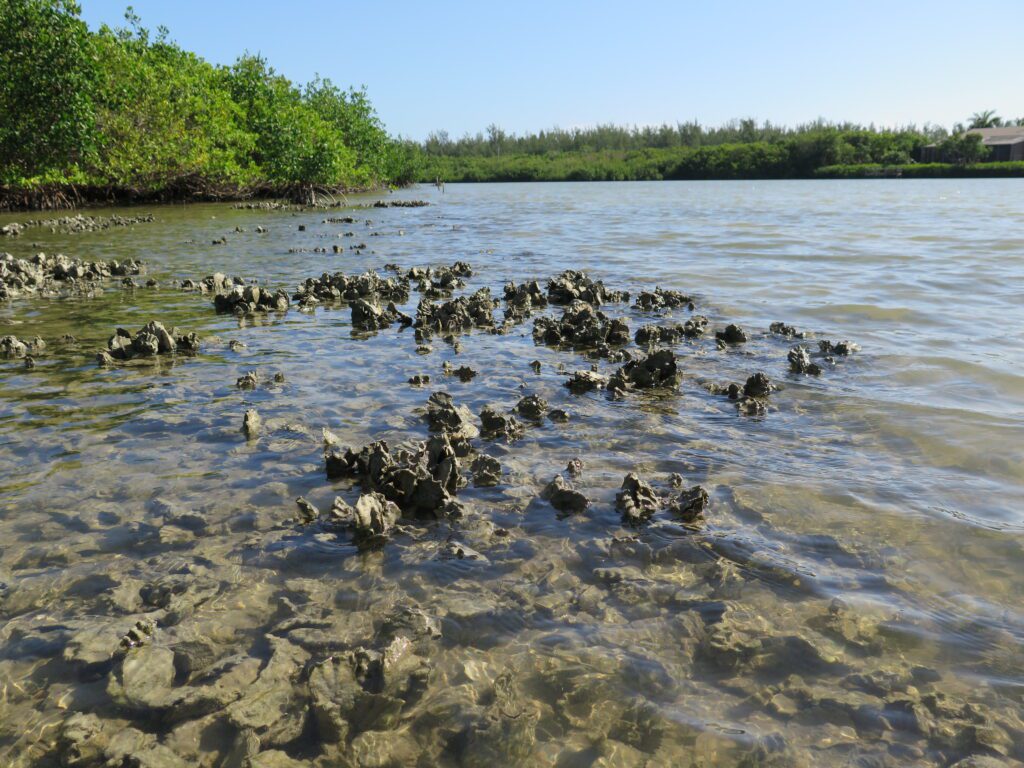
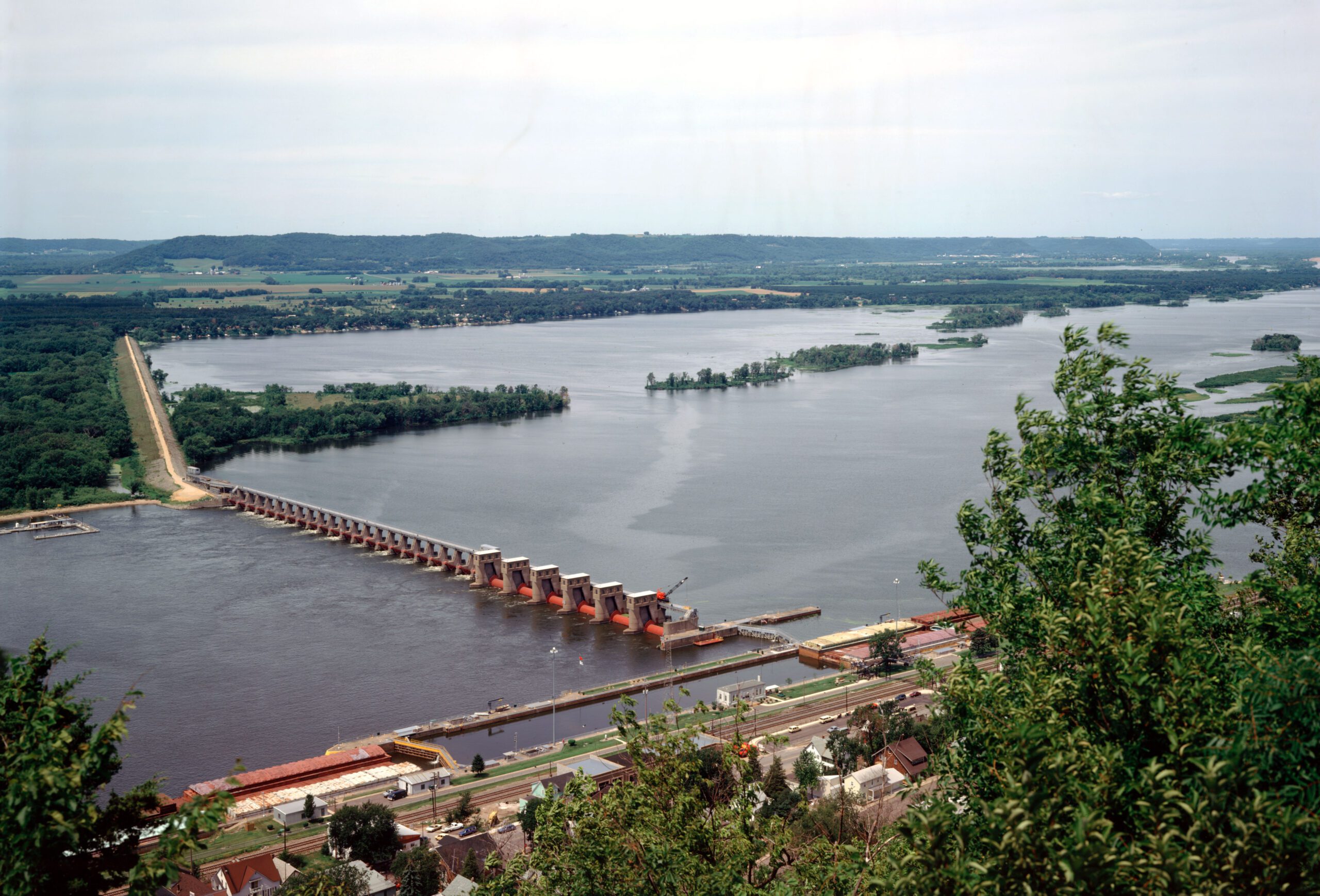
Freshwater Mussels
Freshwater mussels are important indicators of ecosystem health and susceptible to habitat disruptions such as river damming. In North America, which has a high diversity of freshwater mussels, estimates suggest that about half the region’s species are now extinct, endangered, or vulnerable.
Efforts to alleviate their decline concentrate on reducing pollution, restoring habitat, public education, and breeding and propagating threatened species. Recovery projects are chiefly in states along the Mississippi River. Of note are efforts by the U.S. Fish and Wildlife Service, U.S. Geological Survey, and not-for-profits such as the Xerces Society for Invertebrate Conservation.
More information:
https://www.fws.gov/press-release/2024-10/recovery-plan-four-imperiled-freshwater-mussels
https://www.xerces.org/endangered-species/freshwater-mussels/conservation-efforts
Species Survival Plan for the Partula Snail
Intended to control the invasive African giant land snails, the introduction of the predatory rosy wolf snail to French Polynesia led to a catastrophic decline in native Partula land snail populations.
In response, zoos accredited by the Association of Zoos and Aquariums have achieved an important conservation milestone by raising Partula snails under human care at their facilities and reintroducing them to their native wild habitats. Through decades of collaborative breeding programs, including efforts by the Saint Louis Zoo and Detroit Zoo, over 6,000 snails from 10 species were released in 2024.
